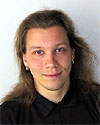
![]() Front Page
Front Page
RESEARCH TOPICS
WHO & WHAT
![]() People @ EdTech
People @ EdTech
![]() Publications @ EdTech
Publications @ EdTech
CONFERENCES

ETHNOCOMPUTING
Project's web-pages:
http://cs.joensuu.fi/~ethno/
The prevailing Westernness of Computer Science is a major problem with the Computer Science education in many non-Western countries. The students not only face a new subject, but also a fundamentally different philosophy and problem solving methods.
Ethnocomputing challenges the prevailing way of thinking that in order to keep up with the West, other cultures have to adapt to Western ways of thinking. Relying on constructivist theories, our argument is that the universal theories of computing take different forms in different cultures, and that the European view on abstract ideas of computing is culturally bound, too.
Studying ethnocomputing - i.e. the computational ideas within a culture - may lead to new findings that can be used both in developing the Western view of Computer Science and in improving Computer Science education in foreign cultures.
Matti Tedre, firstname.lastname@cs.joensuu.fi